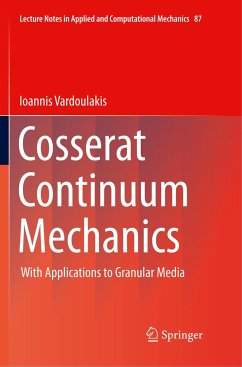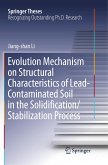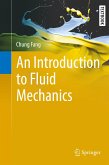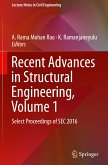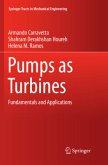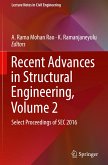This textbook explores the theory of Cosserat continuum mechanics, and covers fundamental tools, general laws and major models, as well as applications to the mechanics of granular media. While classical continuum mechanics is based on the axiom that the stress tensor is symmetric, theories such as that expressed in the seminal work of the brothers Eugène and François Cosserat are characterized by a non-symmetric stress tensor. The use of von Mises motor mechanics is introduced, for the compact mathematical description of the mechanics and statics of Cosserat continua, as the Cosserat continuum is a manifold of oriented "rigid particles" with 3 dofs of displacement and 3 dofs of rotation, rather than a manifold of points with 3 dofs of displacement. Here, the analysis is restricted to infinitesimal particle displacements and rotations. This book is intended as a valuable supplement to standard Continuum Mechanics courses, and graduate students as well as researchers in mechanics andapplied mathematics will benefit from its self-contained text, which is enriched by numerous examples and exercises.
Bitte wählen Sie Ihr Anliegen aus.
Rechnungen
Retourenschein anfordern
Bestellstatus
Storno

